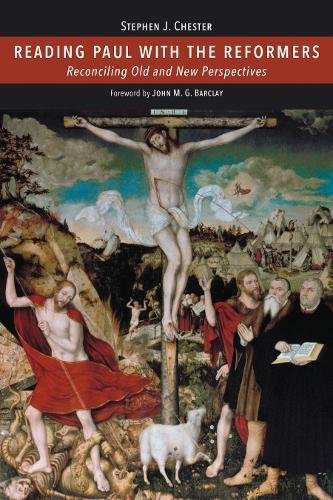Ben. Perhaps it is just my not understanding your language, but at various points in Part One, you talk about ‘the Holy Spirit speaking through’ Paul or others. And, for instance, on p. 34 you say “the main event is thus not Paul’s thoughts as such, but rather what the Holy Spirit has said through Paul. The goal of theological interpretation of Scripture is to explicate that speaking of the Spirit.” It seems to me that the Spirit speaks ‘in’ the words of Paul. We don’t know what the Spirit is saying except in the words of Paul and others in Scripture itself. The Spirit is not using Paul or Scripture in general as a megaphone through which to speak. The Spirit is speaking ‘by’ Paul’s exact words. A bit later on p. 37 you say that authority lies with the Spirit-inspired texts in their disclosure of Christ, not with a reconstruction of the theology argued to underlie those texts. I would say the texts themselves are irreducibly theological in character, and I would add that they don’t simply disclose Christ, they disclose the Trinity. I think there is a serious danger of Christomonism when it comes to interpreting Paul or other Biblical writers, not least because the OT is not largely about Christ. And we end up becoming semi-Marcionites if we just focus on what the text tells us about Christ, or his disclosure. How would you respond?
Stephen. Yes, I think you are hearing the preposition “through” in a different way from the one I intended. I certainly don’t mean that the Spirit speaks through Paul so that God’s word is somewhere in his letters and our task is to identify that divine word and drop the rest or that Paul does not have any agency in speaking his own words. I am quarreling instead with our tendency to seek the historical Paul and to identify the authority of Paul’s texts with our historical reconstructions of his theology when the letters themselves provide us with limited data on which to base such reconstructions. Usually such reconstructions involve radically prioritizing some theological themes in Paul’s letters over others for what purport to be historical reasons but are often actually our own theological preferences. I want to recognize instead that the Holy Spirit speaks in all the words of Paul and no less so when Paul expresses thoughts that may have been uncharacteristic of him or may have subject to later evolution in his personal theological understanding. Our interpretation needs the essential discipline of careful historical study but with the goal of interpreting Paul’s statements not reconstructing his theology. It may be impossible to interpret Paul’s statements without offering to some extent a reconstruction of his theology, and that is unobjectionable so long as we do not confuse the means and the ends. It’s the confusion between the two that I find to be problematic.
I don’t have any problem in speaking about the biblical texts disclosing Christ, and it seems to me appropriate to speak of Scripture as the word of God that discloses the second person of the Trinity who is the Word (John 1:1) and who in turn has made the Father known (John 1:18). In this way an emphasis on disclosing Christ can function within rather than over and against a Trinitarian hermeneutic. I do think it is a mistake, however, to insist exegetically on finding specific references to Christ in unlikely places in the Old Testament.













